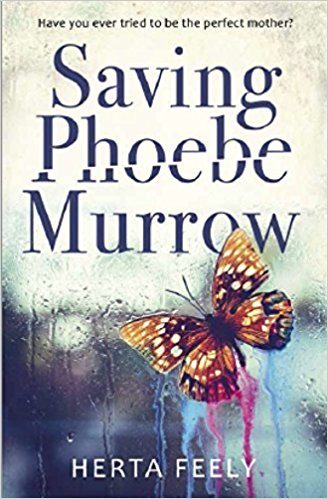This Is How We Can Change The Narrative On Cyberbullying In Our Society
Requests: 0
Views: 16
Late afternoon on Monday, October 16, 2006, soon-to-be 14-year-old Megan Meier sat glued to her computer.
A boy named Josh Evans she’d friended on MySpace was saying mean things to her, and other “friends” were piling on. “Megan is fat.” “Megan is a slut.” These were the ”bulletins” people were posting about her. Megan grew frantic, wondering why this cute boy had suddenly turned on her after flirting with her for the previous six weeks. Toward the end of the exchanges, Josh wrote something along the lines of “the world would be a better place without you” and not long after that Megan entered her closet and hung herself.
I read about this incident in a lengthy feature article in the Washington Post a little over a year later (Jan. 2008). It turned out that Josh Evans wasn’t a 16-year-old boy after all. “He” was Lori Drew, a 47-year-old woman who lived a few houses down from the Meier’s. Drew had created the phony profile to find out what Megan might be saying about her daughter, Sarah, a former friend of Megan’s.
I was taken aback not only by the cruelty of this, but also by the novel way this had been done. Unfamiliar with social media at the time, beyond knowing of the existence of Facebook and MySpace, I decided that perhaps I’d write a novel, which at its center would feature a similar situation — a cyber-bullying incident perpetrated by a mysterious person on Facebook, one who, like Josh, would be hiding behind a false facade.
The characters in my novel, Saving Phoebe Murrow, emerged over the course of the next three years. In 2011, I was ready to sit down and write the story. Numerous revisions later, the novel was sold to a publisher in the US (Upper Hand Press) and also one in the UK (Bonnier) and both released the book last year. Now, twelve months later, after many public readings, radio interviews, and the like, I’ve learned what thirst the public (American and British alike) has for information about social media and the unwieldy, addictive beast that it’s become.
 Saving Phoebe Murrow
Saving Phoebe Murrow
by Herta Feely While Facebook, Instagram, YouTube, Kik Messenger, Snapchat, Whisper, Twitter, Tinder and a dozen more social media apps have millions and even billions of users in the US and around the world (Facebook claims to have 2 billion), and can perform the function of “bringing people together,” there are also downsides to these apps. For example, bullying has taken on new dimensions by going virtual. Cyber-bullying means that attacks can continue unobstructed 24/7, become inescapable by the victim, and are known to have led to depression, anxiety, and even suicide. One website suggests that half of all teens are victims of cyber-bullying, while another claims the statistics are one out of three, but whichever it is the numbers are too high. And many people, parents, in particular, don’t know where to turn for help. Teens too.
 Saving Phoebe Murrow
Saving Phoebe Murrowby Herta Feely While Facebook, Instagram, YouTube, Kik Messenger, Snapchat, Whisper, Twitter, Tinder and a dozen more social media apps have millions and even billions of users in the US and around the world (Facebook claims to have 2 billion), and can perform the function of “bringing people together,” there are also downsides to these apps. For example, bullying has taken on new dimensions by going virtual. Cyber-bullying means that attacks can continue unobstructed 24/7, become inescapable by the victim, and are known to have led to depression, anxiety, and even suicide. One website suggests that half of all teens are victims of cyber-bullying, while another claims the statistics are one out of three, but whichever it is the numbers are too high. And many people, parents, in particular, don’t know where to turn for help. Teens too.
My novel has been a catalyst for conversations about the problems created by social media and what might be done to change this. I don’t claim to have the answers, but know that by stimulating dialogue, change will come.
We just have to ask the right questions, including about our own use of the tools of the virtual world. The cost of not doing so is too high. Numerous cyberbullying statistics and countless other websites continue to reveal the consequences of participating in the cyber world. Social media and the Internet have created new opportunities for sexual predation, exploitation, and homicide. Ultimately, I believe that efforts to minimize the damaging effects of social media will be multi-pronged. Just as with Safe Kids Worldwide, an organization I co-founded in 1987 to target the leading killer of children (unintentional injuries in many countries), we learned that education, publicity, and regulation are all needed to create awareness and then to foster change. At the time that I conceived of the idea, I was 34, only slightly older than the age of our Millennials. Already Millennials are playing a leadership role in many areas, and so too do I believe that you will be critical in creating positive change in how we use social media, particularly when it comes to stopping cyberbullying. ----------------------------Message from the RIZZARR Team: We here at RIZZARR are thrilled that Herta shared this piece with us and for the amazing impact that she has contributed to the world through her novel. Due to the impact of her work, Saving Phoebe Murrow was named one of Amazon Uk's best debut novels of 2016; it received BookWorks' New Book of the Week; and further, it received the 2016 New Apple Literary Award for Excellence in the General Fiction category. Congrats, Herta, and keep up the great work!
Reactions